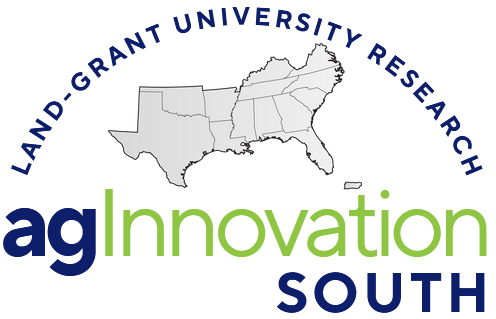
SCC_OLDSCC72: Enhancing Reproductive Efficiency in Cattle (S-284)
(Multistate Research Coordinating Committee and Information Exchange Group)
Status: Inactive/Terminating
SCC_OLDSCC72: Enhancing Reproductive Efficiency in Cattle (S-284)
Duration: 10/01/2002 to 09/30/2007
Administrative Advisor(s):
NIFA Reps:
Non-Technical Summary
Statement of Issues and Justification
Reproductive efficiency is the single greatest factor affecting gross revenues and profitability in cattle operations. According to the most recent USDA agricultural statistics, fewer than 5% of all beef producers in the Southern Region implement reproductive management tools to improve the reproductive efficiency of their herds. Development and dissemination of reproductive management techniques can enhance reproductive efficiency of cattle and improve the profitability and sustainability of cattle operations. The previous IEG has contributed to improving reproductive efficiency of cattle in the Southern Region. IEG-72 has two main functions. First, speakers are invited to present new and(or) innovative methods to improve reproductive efficiency. Second, each member presents a station report. The exchange of scientific data has reduced the duplication of experiments and has stimulated new discussion on methodologies to enhance reproductive efficiency. �
Objectives
-
To exchange information about the role of genetic and environmental factors that influence attainment of puberty in heifers and on management schemes that will result in more efficient development of replacement heifers and improved life time reproductive performance of cows.
-
To discuss behavioral and endocrine events associated with estrus and ovulation in cows and enhance reproductive efficiency by the optimal timing of insemination.
-
To promote the scientific exchange of research results which will foster and encourage more collaborative research and minimize duplication of efforts among institutions.
-
�
Procedures and Activities
Expected Outcomes and Impacts
- It is anticipated that at least three potential collaborative projects will arise from the discussions generated in IEG-72. Also, five state educational programs may arise for dissemination of information to producers. We expect at least 500-1000 producers will be reached. The collaborative projects will yield five refereed journal articles.
- * Approximately 40% (14 million head) of all the cows in the US are located in the region represented by IEG-72. A mere 1% increase in percent calf crop weaned will increase gross revenues by approximately 56 million dollars. Unpublished data from the University of Kentucky indicates that implementation of reproductive management tools like estrus synchronization can increase net return per cow by approximately $100. Therefore, if only 10% of the cows in this region are subjected to advanced reproductive management techniques net returns will increase approximately 140 million dollars.
- �
Projected Participation
View Appendix E: ParticipationEducational Plan
IEG-72 will meet annually at the Southern Agriculture Workers meetings. Each meeting will include an invited speaker which will focus on innovations in reproductive physiology and(or) reproductive management techniques. Each meeting will also include station reports and round-table discussions on scientific protocols and data. The major focus of IEG-72 will be to foster discussion among the participants to help develop new experimental approaches, collaborative efforts, and new reproductive management protocols to improve reproductive efficiency of cattle operations. Each station will report on research activities in their state. An invited speaker will present the latest information on a selected subject. Round-table discussions on each report and on the selected topic will help foster information exchange and potential establishment of collaborative projects.
Organization/Governance
IEG-72 will be governed by three officers and the administrative advisors. The offices will include the Chair, Secretary, and Member-at-Large. The officers will be responsible for the organization and conduct of the IEG.
Literature Cited
�